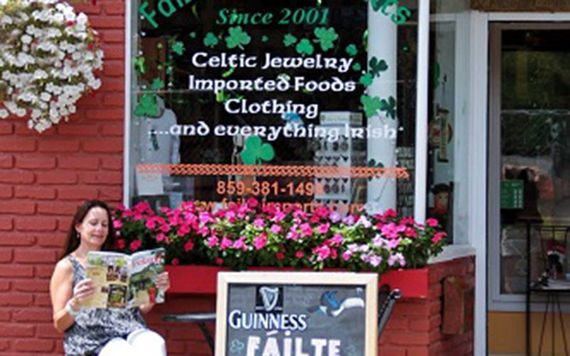From discovering the true meaning to "Dia Dhuit" to figuring out things you really need to say, this Irish American has discovered just how challenging Irish can be... and how rewarding.
I love languages. Well, I love the idea of languages.
I’ve always thought it would be nice to be fluent in something other than English, to be able to check the box on job applications where it asks if you can speak a foreign tongue, to overhear what people are saying while shopping and at restaurants.
WATCH: Choir's infectious rendition of ancient Irish language song
I studied French for nine years, including poetry and diction classes in college, and even after all that, I still can’t say au bon pain correctly. Now, in my thirties, I’ve decided it’s time to give another language a go.
I wanted something interesting, useful, maybe something I could switch to easily from my extensive beginner’s French.
Instead, I’m studying Irish.
My grandmother came to the United States when she was nine-years-old, and I was always fascinated by her hand-stitched Faílte sign. When I came across a dusty tome of fairy tales written in Irish and English at the library and saw the complicated spellings, I wanted to know more.

A shop sign with "Faílte" on it
It turns out the Irish language is quite different from just speaking English with an Irish (Scottish-sounding) accent. Way different. Like really, really dgbhifferent. That’s how I’d spell different in Irish if you asked me to, because I have no idea, but there are a ton of consonants in places that don’t seem to make any sense. Learning the Irish language is sort of like working as a code cracker.
Read more: Irish language phrases for when you're stuck for words
Irish, the bit I’ve picked up so far from six months of Duolingo and an online class through Dublin City University, is beautiful and crazy and somehow, relatively intuitive (once you stop trying to force lateral translations on everything.
Hello = dia duit = God be with you. If I’d just looked up dia duit because somebody greeted me with it, I might think that person was a nun or a religious zealot. Of course, through Duolingo, most of what I’ve learned to say has been things like, Feicim an madra is salaí (I see the dirtiest dog) and Tá do leabhar níos spéisiúla (Your book is more interesting), but I bet I would like to say practical things too, like “How much for the pizza?”
Recently I was in Bridget's, an Irish tradition, a store in Norton, MA, and overheard a couple who had stopped in talking with the owner about Irish phrases they knew.
There are lots of people around the world who would love to see the Irish language thrive, and with classes both online and at schools and cultural centers around the world, it’s a possibility. I, for one, will be looking into summer classes to expand my knowledge of the Irish language. And although it’s unlikely I’ll ever use Irish in a functional way, I can’t wait to be able to say something other than, Ní maith liom brocailí (I do not like broccoli) - however true that may be.
Read more: Fun and easy Irish language phrases to learn during lockdown
* Originally published in 2013.
This article was submitted to the IrishCentral contributors network by a member of the global Irish community. To become an IrishCentral contributor click here.




Comments